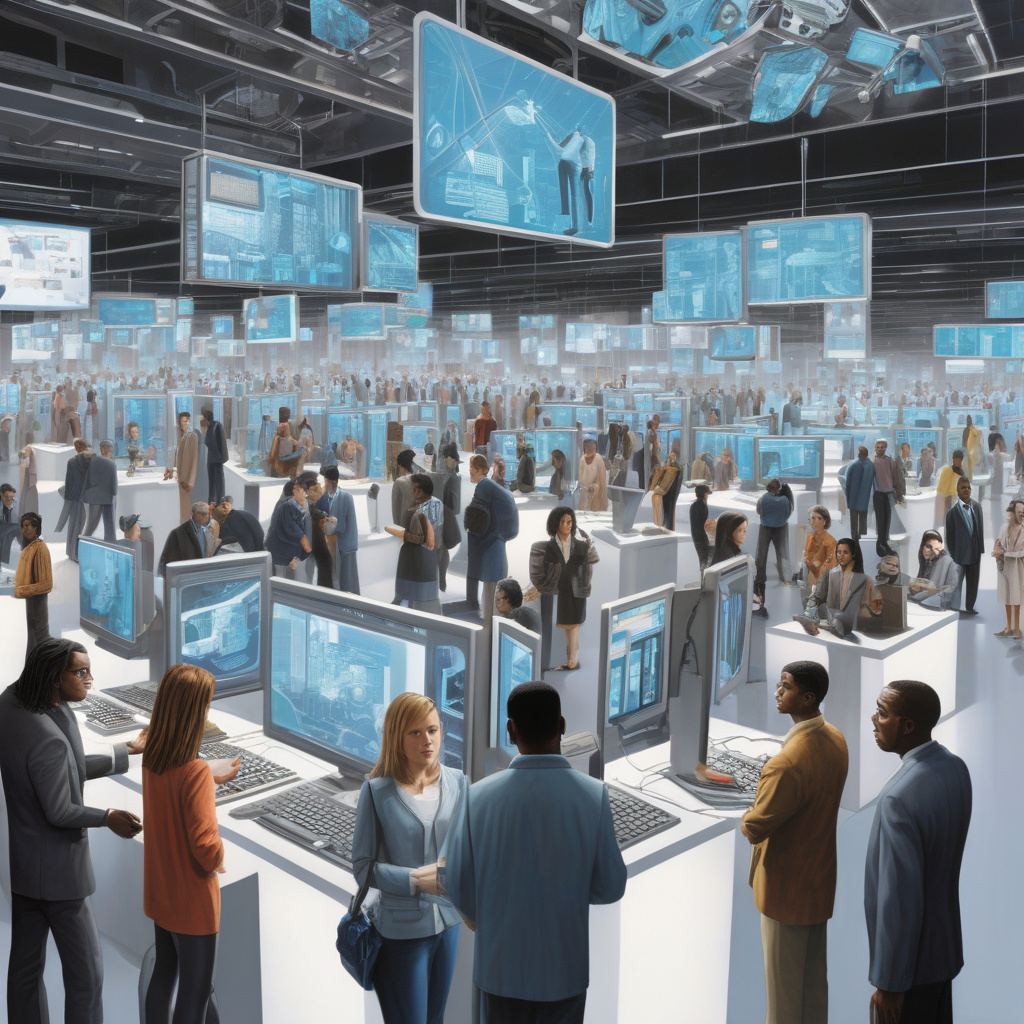AI Threatens the Future of Entry-Level Jobs
Artificial intelligence (AI) has been making significant strides in recent years, revolutionizing various industries and streamlining processes. However, this rapid advancement in technology comes with a downside – the potential threat it poses to entry-level jobs. Recent studies suggest that AI could potentially replace up to half of all entry-level positions, raising concerns about the future of traditional career paths and the livelihoods of millions of workers.
The automation of entry-level jobs is a growing trend that is reshaping the labor market. Tasks that were once performed by entry-level employees, such as data entry, customer service, and basic analysis, can now be efficiently handled by AI-powered systems. This shift not only increases operational efficiency for companies but also reduces labor costs, making it an attractive option for businesses looking to cut expenses.
One of the primary reasons behind the displacement of entry-level workers by AI is the technology’s ability to perform repetitive tasks quickly and accurately. AI systems can process vast amounts of data in a fraction of the time it would take a human, leading to increased productivity and cost savings for companies. As a result, many businesses are opting to invest in AI technology to streamline their operations and gain a competitive edge in the market.
The impact of AI on entry-level jobs is already being felt across various industries. For example, in the retail sector, many companies are turning to automated checkout systems and chatbots to handle customer inquiries, reducing the need for human employees. Similarly, in the manufacturing industry, AI-powered robots are being used to perform assembly line tasks that were previously carried out by human workers.
While the adoption of AI technology offers numerous benefits for businesses, it also raises concerns about the future of work for entry-level employees. With AI poised to take over a significant portion of entry-level jobs, many workers may find themselves displaced and struggling to secure alternative employment. This could potentially widen the gap between skilled and unskilled workers, leading to increased inequality in the workforce.
To address the challenges posed by AI automation, policymakers and businesses must take proactive steps to support and retrain workers whose jobs are at risk. Investing in education and upskilling programs can help equip workers with the skills needed to adapt to the changing labor market and secure employment in emerging industries. Additionally, implementing policies that promote job creation and support displaced workers can help mitigate the negative impact of AI on entry-level jobs.
In conclusion, the rise of AI technology poses a significant threat to the future of entry-level jobs, with studies suggesting that up to half of these positions could be replaced by automation. While AI offers undeniable benefits for businesses in terms of efficiency and cost savings, it also raises concerns about the livelihoods of millions of workers. By taking proactive measures to support and retrain workers, we can ensure a more equitable and sustainable future for the workforce in the age of AI.
AI, Automation, Entry-Level Jobs, Workforce, FutureOfWork
